
Courtesy of Atlanta Journal-Constitution
History and Advocacy
Whether campaigning for civil rights or promoting economic reform, these Georgians risked arrest, censure, and worse in pursuit of social justice.
The Albany Movement
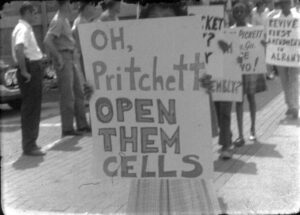 The Albany Movement was the first campaign of the civil rights era that attempted to desegregate a whole community. More than a thousand Black protesters were jailed over the course of the movement, including Martin Luther King Jr. After months of work and little progress, King considered the movement a failure. However, King learned from the Albany Movement and applied the lessons to his work in Birmingham, Alabama, and beyond.
The Albany Movement was the first campaign of the civil rights era that attempted to desegregate a whole community. More than a thousand Black protesters were jailed over the course of the movement, including Martin Luther King Jr. After months of work and little progress, King considered the movement a failure. However, King learned from the Albany Movement and applied the lessons to his work in Birmingham, Alabama, and beyond.
Sample Primary Sources
Digital Library of Georgia
Georgia Historic Newspapers
Atlanta Sit-ins
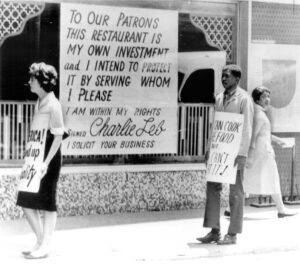 Students from Atlanta’s historically Black colleges formed the Committee on Appeal for Human Rights (COAHR) in March 1960. Their manifesto, “An Appeal for Human Rights,” was published in local newspapers, including the Atlanta Constitution, garnering attention and praise for their commitment to nonviolence. The students then lobbied to desegregate lunch counters and eventually joined forces with the Student Nonviolent Coordinating Committee (SNCC). Through a campaign of sit-ins and boycotts at restaurants and stores, COAHR worked to desegregate prominent local businesses.
Students from Atlanta’s historically Black colleges formed the Committee on Appeal for Human Rights (COAHR) in March 1960. Their manifesto, “An Appeal for Human Rights,” was published in local newspapers, including the Atlanta Constitution, garnering attention and praise for their commitment to nonviolence. The students then lobbied to desegregate lunch counters and eventually joined forces with the Student Nonviolent Coordinating Committee (SNCC). Through a campaign of sit-ins and boycotts at restaurants and stores, COAHR worked to desegregate prominent local businesses.
Sample Primary Sources
Civil Rights Digital Library
Digital Library of Georgia
Georgia Historic Newspapers
Black Troops in Civil War Georgia
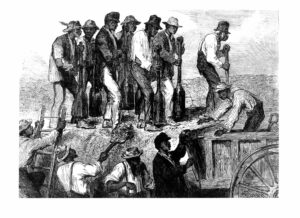 During the U.S. Civil War, thousands of Black Georgians joined Union forces to fight for freedom. Though they swelled the ranks of the Union army, Black troops regularly experienced racial discrimination in uniform and faced the likely danger of re-enslavement if captured.
During the U.S. Civil War, thousands of Black Georgians joined Union forces to fight for freedom. Though they swelled the ranks of the Union army, Black troops regularly experienced racial discrimination in uniform and faced the likely danger of re-enslavement if captured.
Sample Primary Sources
Digital Library of Georgia
Georgia Historic Newspapers
Freedom Rides
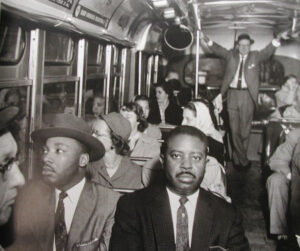 In the spring and summer of 1961, the Congress of Racial Equality (CORE) sponsored a series of integrated bus and train rides across the South to challenge the segregation of public stations and terminals. The Freedom Riders carefully planned their route and tactics to ride safely but still faced harsh resistance at many stops. Though they traveled undisturbed through Georgia, tensions came to a head in Alabama, where the Freedom Riders experienced widespread violence.
In the spring and summer of 1961, the Congress of Racial Equality (CORE) sponsored a series of integrated bus and train rides across the South to challenge the segregation of public stations and terminals. The Freedom Riders carefully planned their route and tactics to ride safely but still faced harsh resistance at many stops. Though they traveled undisturbed through Georgia, tensions came to a head in Alabama, where the Freedom Riders experienced widespread violence.
Sample Primary Sources
Civil Rights Digital Library
Digital Library of Georgia
Georgia Historic Newspapers
New Deal
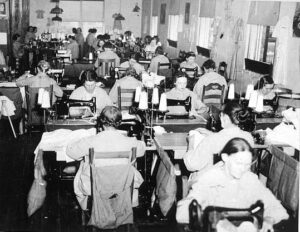 With his home in Warm Springs providing a greater connection to the state, Franklin D. Roosevelt was alarmed by the educational and social issues he noticed in impoverished rural areas. However, the reforms promised by Franklin D. Roosevelt’s New Deal in the 1930s were received with mixed reactions in Georgia. Governor Eugene Talmadge and his followers harshly criticized the New Deal, claiming that the federal government was meddling in state affairs.
With his home in Warm Springs providing a greater connection to the state, Franklin D. Roosevelt was alarmed by the educational and social issues he noticed in impoverished rural areas. However, the reforms promised by Franklin D. Roosevelt’s New Deal in the 1930s were received with mixed reactions in Georgia. Governor Eugene Talmadge and his followers harshly criticized the New Deal, claiming that the federal government was meddling in state affairs.
Sample Primary Sources
Digital Library of Georgia
Georgia Historic Newspapers
Slavery in Colonial Georgia
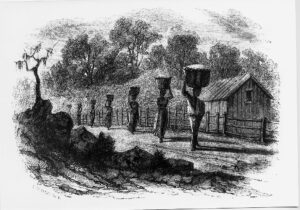 The 1735 ban on slavery in Georgia sparked political debate for fifteen years as Georgia lowlanders clamored to legalize slavery. In 1750 James Oglethorpe and his fellow Trustees agreed to lift the ban, forever changing the lives of countless individuals and families. As slavery took hold of the economy, enslaved men and women fought to preserve their culture and relationships.
The 1735 ban on slavery in Georgia sparked political debate for fifteen years as Georgia lowlanders clamored to legalize slavery. In 1750 James Oglethorpe and his fellow Trustees agreed to lift the ban, forever changing the lives of countless individuals and families. As slavery took hold of the economy, enslaved men and women fought to preserve their culture and relationships.
Sample Primary Sources
Digital Library of Georgia
Georgia Historic Newspapers
Women’s Suffrage
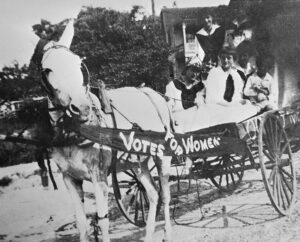 In 1920 the Nineteenth Amendment was added to the U.S. Constitution, stating that the right to vote, or suffrage, could not be denied based on gender. Groups such as the National American Woman Suffrage Association (NAWSA) and the National Association of Colored Women (NACW) worked tirelessly in the late nineteenth and early twentieth centuries to secure voting rights. While opposition from many in the South slowed their progress, Georgian women gained voting rights in 1922, two years after the constitutional amendment.
In 1920 the Nineteenth Amendment was added to the U.S. Constitution, stating that the right to vote, or suffrage, could not be denied based on gender. Groups such as the National American Woman Suffrage Association (NAWSA) and the National Association of Colored Women (NACW) worked tirelessly in the late nineteenth and early twentieth centuries to secure voting rights. While opposition from many in the South slowed their progress, Georgian women gained voting rights in 1922, two years after the constitutional amendment.
Sample Primary Sources
Digital Library of Georgia
Georgia Historic Newspapers



